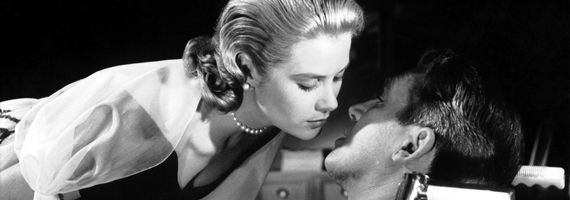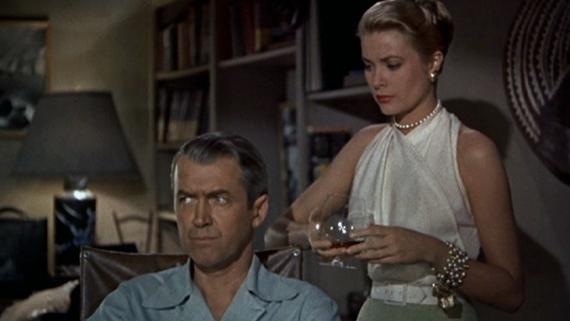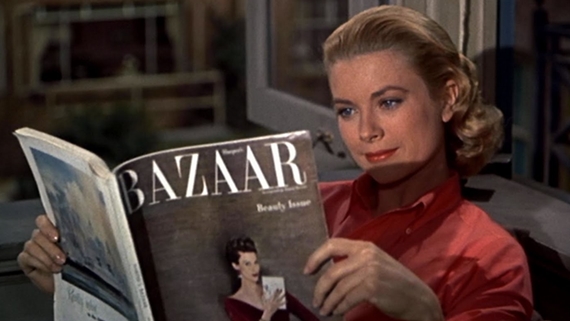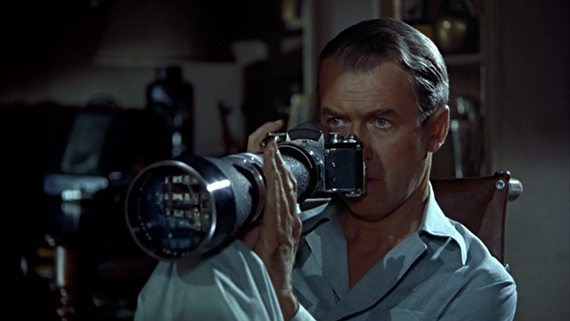
Rob is constantly being bombarded by people telling him “you haven’t seen ____? You gotta check it out.” Or hearing critics rave “this movie is a classic, a must see.” So Rob decided that from now on every time he actually watches one of these flicks, he’ll give us his take on whether the film will live up to the hype or fall short.
So, what’s the deal with Rear Window?
I recently watched Alfred Hitchcock’s Rear Window. I was lucky enough to it catch as a part of the Charles Theater’s Revival Series, so I was able to watch it on the big screen. Rear Window is a film starring James Stewart as a photographer who is trapped in his apartment due to a broken leg caused by an accident on the job. Due to the fact that he can’t leave his apartment, he watches his neighbors in the busy courtyard of his apartment complex. He begins to notice a neighbor is acting strange before that same neighbor’s wife goes missing. He has to convince his friends and himself that what he thinks is happening is true.
I thought I knew a lot about Rear Window before finally watching it. I can’t even remember of all the different shows and movies that reference this film. I also saw Disturbia, but I honestly never looked at that movie as something that wanted to stay true to its source. My favorite depiction of Rear Window is easily the episode of The Simpsons when Bart is hulled up in his room with a broken leg. I wondered how Hitchcock would be able to take his idea and create a two hour long movie that would keep my focus. He achieved it by his use of dialogue that fleshed out a great story.
The first half hour to forty-five minutes of the film revolves around James Stewart talking to his nurse and having stay-in date nights with Grace Kelly. Since Stewart and Kelly are such strong presences on the screen and have such charisma in their performances, it never becomes tedious or repetitive. Hitchcock does a great job of giving his characters really detailed back stories before getting into the meat of the plot. I don’t know if it was entirely necessary, but I believe it really helped with my overall enjoyment of the film.
Once the film gets into the meat of the story, the writing stays consistently high. I wasn’t entirely sure if Stewart’s character was correct in his accusation of murder. Throughout the film I continued to try to guess whether or not his neighbor actually committed a crime or if his wife was just out of town. This added even more enjoyment to the movie beyond the love story between Stewart and Kelly. Another thing that adds charm to this movie is its smart humor that is part of the charm of films from the 50’s.
Overall I would recommend this movie to anyone who considers their self a movie buff or anyone who enjoys a well-written film. If you haven’t already, take some time to give Rear Window a viewing.



